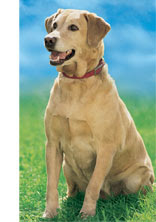 What is the Trans-Resveratrol Discovery?
What is the Trans-Resveratrol Discovery?Trans-resveratrol is the secret, age defying and health promoting nutrient found within red wine. The discovery by Harvard Medical School† researcher shows that concentrated resveratrol activates human genes responsible for longevity, survival and cardiovascular health, has triggered worldwide research into this powerful health promoting substance. Resveratrol molecules have been shown to turn on the pathways that repair DNA celluar damage to slow the aging process. The important factors of resveratrol potency and concentration are key to its effect. The outstanding health benefits recently discovered have been uniquely experienced from using concentrated resveratrol. Researchers are tapping into the natural matrix whereby resveratrol, made by plants to protect themselves from stress, transfers these natural benefits to significantly support health.*
Research Demonstrated Benefits of Resveratrol:
* Extends lifespan in non-vertebrates and vertebrates*
* Anti-inflammatory effects*
* Cardiovascular protective effects*
* Neurologic protective effects*
* Anti-microbial effects / phytoalexin properties* (Plants naturally produce this antibiotic agent to fight against bacteria and fungi caused by environmental stresses and severe weather conditions.)
Scientific Summary:
* Resveratrol extends the lifespan of various species, most recently demonstrated in mice fed a high calorie diet.
* In studies of lifespan and aging in vertebrates (fish and mice), other positive effects of resveratrol were also shown:
o Maintenance of nurocognitive function*
o Improved balance, sensory-motor coordination and endurance*
o Improved insulin sensitivity*
* Additional study of genes in these animals suggest resveratrol works through various mechanisms including those that alter energy metabolism and cell survival.*
* Resveratrol appears to have an effect on similar genes as caloric restriction, a model known for reducing the effects of aging.* Research data on file, Eniva USA, 2009.


No comments:
Post a Comment